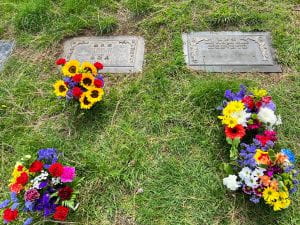I would never wish grief upon anyone.
Having been well acquainted with grief for the great majority of my life (introduction at 7 losing my maternal grandmother who raised me, with a a crash course in acute grief at 16 after losing my mother suddenly, and being close to death and loss many times since), grief has been a (mostly unwanted) companion for a long time. It has brought with it deep pain, longing, emptiness, and loneliness.
I say “mostly” unwanted, not because grief is anything one wants, but because I have recently gained a slightly different perspective on my grief as a part of my identity that strengthens me and allows me a greater connection with humanity, a greater sense of empathy and love, and a profound perspective on life that I don’t think I could have developed in any other way.
It is perhaps not grief alone that has done this. In fact, it is certainly not grief “alone” because when, for many years, I bottled up my grief, to build success in spite of it, I felt completely alone, disconnected from myself, my communities, and those who truly sought to know who I was.
It is, in fact, collective grief, or perhaps connective grief, that has brought healing in the midst of so much loss.
When my mother died, more than 25 years ago, I do not remember a lot about the period just after her death, but I remember a few things very distinctly: 1) Many people who came to her viewing were people I didn’t know who were part of the Taiwanese American community who loved her deeply, regretted not having more time with her, and shared stories with my aunt and brother, that I couldn’t understand for many reasons; 2)her funeral service had over 400 attendees: people who had flown in from all over the country whom she hadn’t seen in years, people from her job, churches she had briefly or consistently attended, people who were close to my brother, families from my high school, especially other cross-country parents; 3) At her funeral, there was a picture by the gravesite memorial of me half-laughing or perhaps just smiling. My brother had made a joke about my mom and it made me smile. We got in a lot of trouble for that photograph as I wasn’t allowed a moment of lightness in the heaviest time of my life.
I share these things because I am reminded that community bonds sometimes are deeper than the people we see each day. I share them because it was important to me to see my mother as someone who was so deeply loved and respected, even if she did not feel that she was these things much of the time (I was the only one living at home with her at the time of her death, and so became her confidant and saw her struggles with feeling alone and disrespected). I share them because it reminds me that in those moments, I instinctively knew that there was a complexity of grief that held many emotions, before I was socialized to grieve by two societies (Taiwanese & American) that reminded me not to be public with my emotions, good or hard, because it might bring shame to my family, because it might be judged as weakness, because sometimes hard things happen and of course, we’re supposed to take a few days, then move on.
Of course, I’ve learned, after 27 years, that grief doesn’t work that way, that grief is one of the most powerful experiences one can go through, and that grief in community, while not lessening the intensity of the pain, can allow for us to move through it holding another’s hand, knowing that we are not profoundly alone in our experience.
It’s been a week since a shooting at the Irvine Taiwanese Presbyterian Church in Laguna Woods, California which killed Dr. John Cheng and injured several other Taiwanese elders. This week has been, not unexpectedly, brought up a lot of grief, and it has resurfaced a lot of questions for me as to my own Taiwanese American identity. I have always felt on the fringe of the Taiwanese American community, as someone who did not regularly attend Taiwanese churches, community events, as someone who speaks only basic Mandarin and remembers just a few childhood family words and phrases in Taiwanese Hokkien.
Yet, strangely (or perhaps not), this week has made me understand that I am more Taiwanese American than I ever knew. As I’ve been soaking in so much information, about the context of the church, the complicated politics of Taiwanese history, many of which are frozen in time for my mother’s generation, but which continue to evolve in Taiwan itself, as I’ve been piecing together many parts of my own family’s landscape within a broader Taiwanese context, I have been able to embrace the ways in which I am and can be proud of being Taiwanese American, with all of the complexities of that identity.
It is certainly not grief alone, or even, I realize in the writing of this, is it collective grief, in and of itself, that has done this for me. It is the generosity of people who know more than me, who in their grief are processing aloud, are sharing their knowledge, who are seeking community on social media. What has finally, after many years, brought me peace about my identity as Taiwanese American is so similar to what has brought me peace around the loss of my mother, finding my place, finding her, through the stories of others, finding new connections that I thought weren’t possible.
Connection is there, in grief, when we are open to it, when we are ready for it.
We are not alone.

